‘Take Care of Maya’ trial: Maya’s father continues testifying in $200 million court case
VENICE, Fla. - Testimony resumed Tuesday morning in a $220 million lawsuit against Johns Hopkins All Children’s Hospital featured in the Netflix documentary ‘Take Care of Maya’ with Maya's father taking the stand to testify for the second day.
Dr. Anthony Kirkpatrick was expected to take the stand on Tuesday, but, according to the Kowalski's attorney, he is not feeling well and is unable to make it to court.
Maya’s father, Jack Kowalski, took the stand on Monday afternoon after an emotional morning of testimony surrounding Beata Kowalski’s death by suicide.
The surviving Kowalski's are suing the hospital, claiming the actions of the hospital and the Department of Children and Families caused Beata Kowalski to take her own life after she was kept away from her daughter for 87 days after a judge ordered Maya to be sheltered at the hospital while child abuse allegations were being investigated.
Maya's father told jurors that years after being diagnosed with Complex Regional Pain Syndrome, his daughter continues to have flare-ups.
"Today, she is stating her limbs are hurting, but she tolerates pain, she keeps going," he said.
Jack Kowalski explained that was the pain Maya felt while hospitalized at Johns Hopkins All Children’s Hospital at age 10. That’s when staff reported suspicions of child abuse against Maya’s mom, Beata.
The father testified on the treatment Maya and those who tried to visit her received.
"Did you learn through the course of this that they believed Beata was slipping ketamine through the holy water and wafers?" asked attorney Gregory Anderson.
"I know it didn’t happen, but they had all different ideas," Jack Kowalski answered.
Anderson argued those theories resulted in Beata Kowalski’s desperation and death by suicide. Defense attorneys for Johns Hopkins All Children’s Hospital questioned Kowalski on the family’s decision to move forward with a Ketamine coma in Mexico.
On Monday, jurors were read two notes that Maya’s mother left behind before she took her own life. She left one note for her family and another note for the judge overseeing the custody decision.
In the note, Beata Kowalski said the judge destroyed her family, and marriage and caused the family to go bankrupt because he kept her away from Maya.
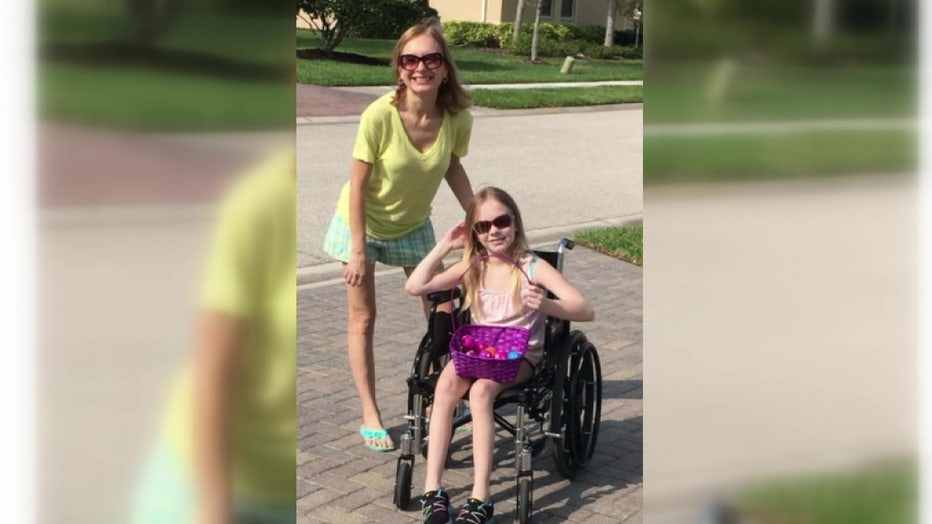
Pictured: Beata and Maya Kowalski
Retired Sarasota County Sheriff's Office Detective Jarek Szalbirak detailed what he took away from the notes from Beata Kowalski.
"This gives us really good clue as to what she was going through emotionally, the depression, being in pain, emotional pain, and no longer can take that pain," said Szalbirak.
Jack Kowalski wiped away teas as Szalbirak spoke about Beata Kowalski's suicide.
When he took the stand, he detailed the pain Maya was experiencing as a result of Complex Regional Pain Syndrome or CRPS.
RELATED: 'An unseen pain': Woman describes living with CRPS as 'Take Care of Maya' trial continues
"If she took a shower, the droplets of water would make her scream," he said. "You put a sheet over her legs, and she would scream."
In 2015, after seeing doctor after doctor, Maya remained in pain and unable to walk. Jack Kowalski said that her mother was desperate to help her.
"Beata was looking for the answer," Jack Kowalski said. "She knew there was nothing wrong with Maya's head."
He told jurors that his wife, who was a nurse, had an infusion patient who told her about CRPS.
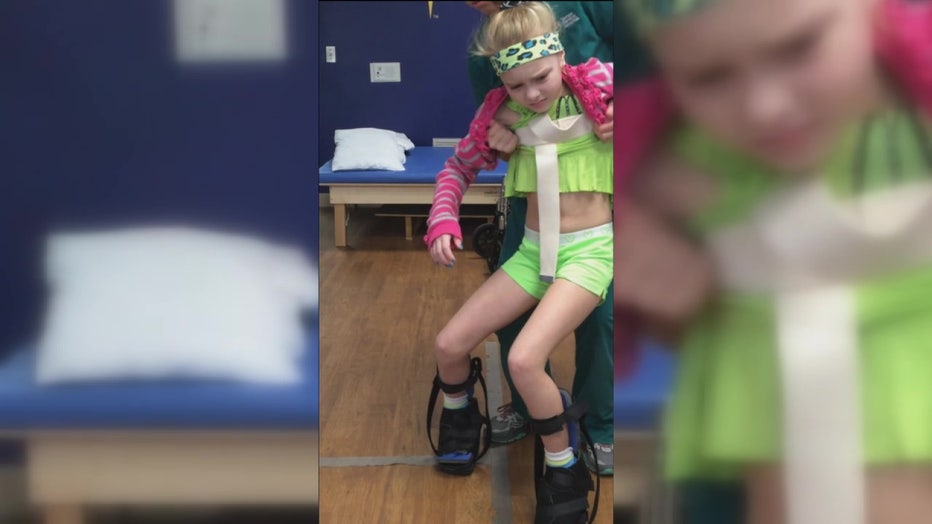
A video of Marissa Higgins helping Maya try to walk was shown in court on Friday.
"You know your child," he said. "Your child is not going to fake this and not play with my friends outside and just sit around and watch your body deteriorate; along with that, you don't put lesions on your body yourself."
Beata Kowalski's research brought her to Dr. Anthony Kirkpatrick for an evaluation.
"He was asking questions, and it was like yeah; it was the first time we are hearing somebody ask us questions, and it seemed like he was onto something," Jack Kowalski said.
Dr. Kirkpatrick prescribed ketamine as a treatment.
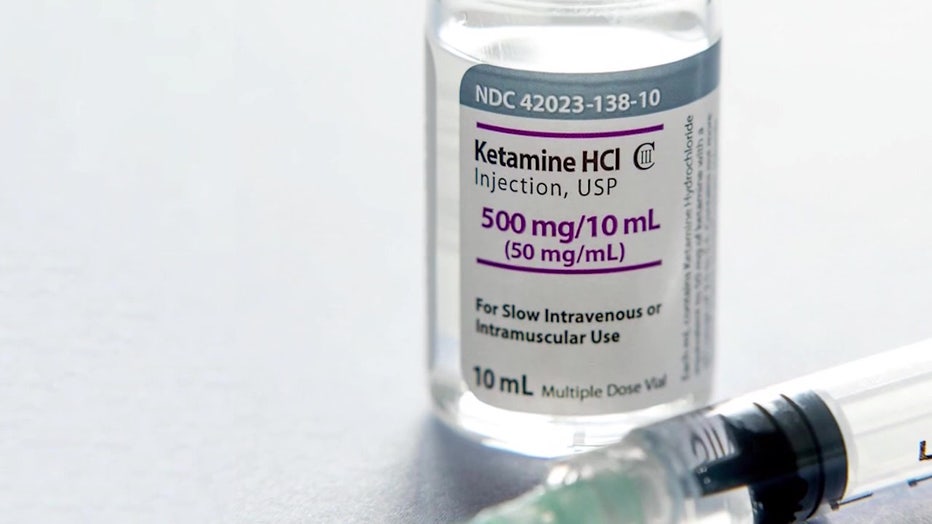
File: Ketamine
"He explained the procedure. He talked about how it’s been around for quite a long time. He mentioned it’s used for many things, and it’s safe," Jack Kowalski stated. "The side effect when they’re coming out of it is a hallucination for a short time, but then everything is back to normal."
RELATED: 'An unseen pain': Woman describes living with CRPS as 'Take Care of Maya' trial continues
Maya’s father told the jury he and his family saw Maya slowly returning to herself.
Why was Maya in state custody?
When Maya was brought to Johns Hopkins All Children's Hospital in October 2016 during a flare up of pain, Beata Kowalski insisted hospital staff give her ketamine. Her persistence alarmed hospital staff and they called in a report to the Child Abuse Hotline.
They suspected Beata Kowalski, who was a registered nurse, was making her daughter sick.
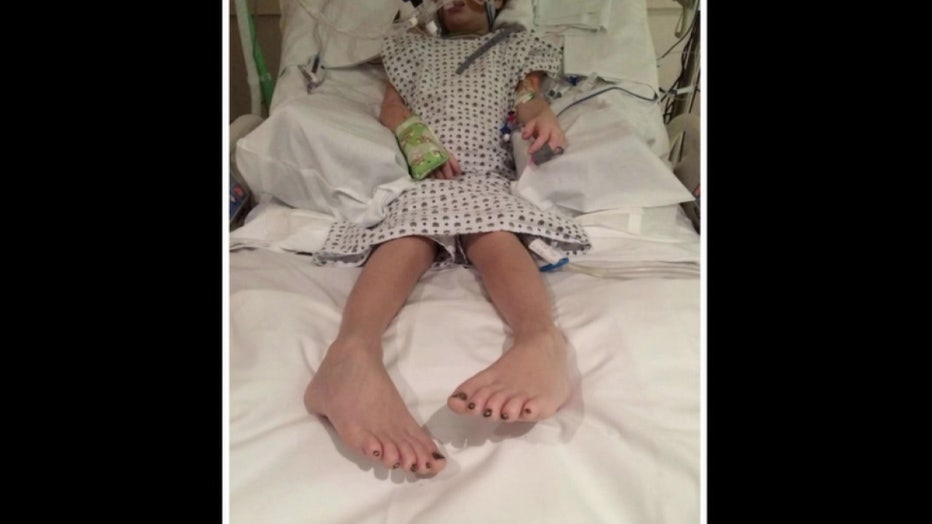
Maya Kowalski in a hospital bed.
When the hospital’s attorney began his opening statements, he noted that several hospital staffers believed Beata Kowalski suffered from Munchausen syndrome by proxy (MBP) and they were trying to protect Maya.
A judge ordered Maya to be sheltered at the hospital while the child abuse allegations were being investigated. She wasn’t allowed to be discharged to her family or another treatment facility and could not see her mother. A judge ordered her remain at the hospital under state custody. Beata Kowalski died by suicide about three months later.
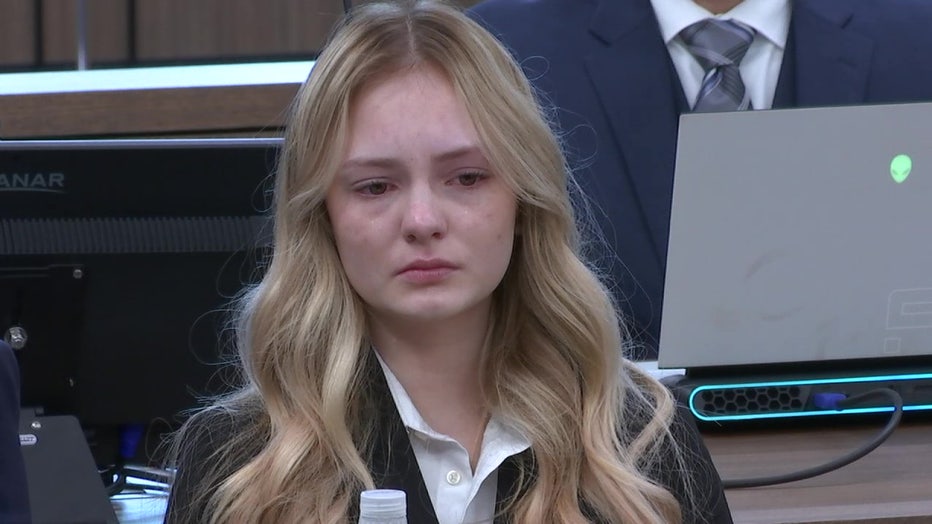
Maya Kowalski listens to opening statements in a $200 million case against All Children's Hospital.
"We had no reason to wish this family harm and we still don’t, the issue here is who is responsible for it. We will go over the facts and what the facts don’t show in terms of any connection of what was done by All Children’s and that tragic result," attorney Howard Hunter previously stated.
PREVIOUS: Family in Netflix’s ‘Take Care of Maya’ takes lawsuit against Johns Hopkins All Children’s to court
Hunter says staff at Johns Hopkins All Children’s Hospital followed state law by reporting a situation that raised red flags for the medical staff.
However, the Kowalski family claims that while hospital staff was accusing them of lying about CRPS and refusing to treat Maya, the facility was billing the family and their insurance more than half a million dollars for that exact cause of illness.
The hospital is expected to argue that Maya’s outside ketamine treatments were dangerous and inappropriate for a child.
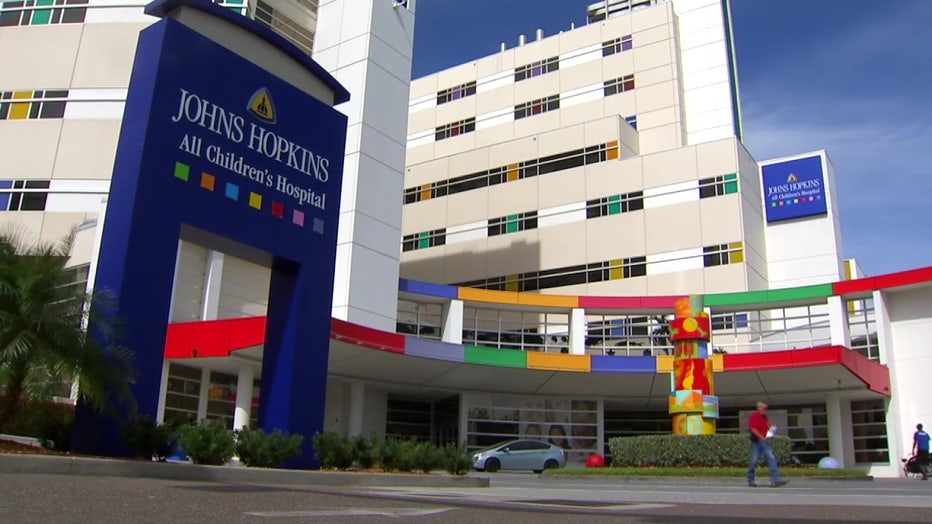
File: Johns Hopkins All Children's Hospital
Jurors will ultimately have to decide whether what happened to the Kowalski family could have been prevented and if the hospital’s actions pushed Beata Kowalski to take her own life.
"We ask in this case for you to consider not only compensatory damages to try to make them whole for these terrible things, but also punitive damages to deter them to punish them and to deter this type of behavior in the future," said Greg Anderson, Maya Kowalski’s lawyer.
The family already settled with the DCF Suncoast Center and child abuse pediatrician Dr. Sally Smith who once worked for the center, but is no longer employed by the organization.
Last week, the Kowalskis dropped a case against DCF social worker Catherine Bedy, who was a focus of the documentary.
The family’s attorney reportedly described the decision as a ‘walkaway agreement’, which means the family chose to drop the suit against Bedy while continuing to sue the hospital.
The trial is expected to last up to two months.

